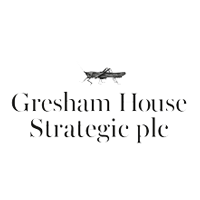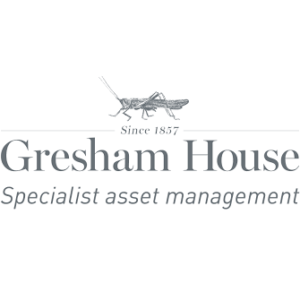Gresham House Strategic PLC (LON:GHS) Fund Manager Graham Bird, IMImobile PLC (LON:IMO) Senior Vice President of Marketing Matt Hooper and Agenda21 Managing Director and Founder Rhys Williams caught up with DirectorsTalk for an exclusive interview.
Graham discusses the growth trends exposed to Gresham House Strategic and why their investment in IMImobile will bring in a good return. Matt discusses what IMImobile do and give specific examples of how they help their clients, which include O2. Graham also discusses why they are invested in Be Heard Group PLC (LON:BHRD) and Rhys discusses how Agenda21, an acquisition of Be Heard, supports major clients like Vodafone.
Q1: Graham, if I can start by asking, what specific growth trends are you exposed to within Gresham House Strategic?
A1: As you would know, there are a lot of changes going on, being driven by digital transformation in almost every facet of business including whether it’s artificial intelligence, machine learning, lots of talk about big data and importantly too, the way in which organisations are communicating with their own customers through multi-channel, I’m seeing significant changes in that space. So, that’s an area where we are specifically interested and focussing on the shift in the way that consumer facing organisations are engaging with their customers and clients. That’s driven both by the growth in mobile and multi-channel, which I mentioned, and also by the availability of data and the ability to create insights from that data which is driving a transformation in the way companies market and advertise. So, two investments which you’ve mentioned which we have and have particular focus and exposure to those themes are IMImobile and Be Heard Group.
IMImobile is an enterprise software business which enables large consumer facing organisations to engage with their customers through mobile. I think it’s unique in many respects, in some ways it’s agnostic to the technology changes which are going on because it offers a multi-technology solution, whether it’s text messaging; multimedia, whether it’s social media type messaging; Twitter, Facebook, Messenger, Microsoft Messenger, in-app messaging etc. It provides all of that functionality to corporates that can then use that through mobile devices so solving some complex problems for its clients and taking away some of the risk that’s associated with certain technology changes.
Be Heard Group is building a network of digital marketing capabilities, specifically offering capability in all areas of what is a very fast changing digital marketing space. They specifically focus on four areas they’ve talked about which is digital strategy, user experience and design and build, media planning and buying and creative and content, all of those four really hang together around the core of all of that which is around data analytics.
Q2: Now, you have a significant investment in IMImobile through Gresham House Strategic, why do you believe that you’ll make money from this investment?
A2: Well, as you’d expect IMImobile is a high conviction investment for us and I do believe it has significant upside potential. I think, probably, I’d focus on four key reasons why I believe it’ll make money:
The first really links back to what I’ve said about some of these growth trends, IMI has a very strong position in what I perceive to be a very attractive market and it’s positioned at the heart of this shift in the way that the organisations are interacting with their consumers. This has really become mainstream in the last 3-4 years, having been talked about prior to that, but the adoption of smart phones and the growth in digital etc. has really driven large consumer facing organisations now to take that on. IMImobile has embedded technology, both with mobile operators but also with its clients, so it puts it in a very strong position right in the change that’s been happening so I see it as a business at the forefront of mobile technology with strong underlying growth and it’s high value to the clients that it’s serving. It also has a leading position in a number of industry verticals, notable with mobile operators and financial services in particular and is also growing strongly in other industry areas such as utilities and the FMCG space. So, a strong position in an attractive market.
The second reason I think it’ll make money is it has very attractive financial characteristics, having said it’s in a structurally growing market, the evidence of that is that the revenues and profits have been growing very strongly over the few years and we anticipate that continuing into the future. More than 90% of its revenue is recurring, it’s an internationally based business so it’s well diversified across geographies and across different client base, it has very strong cash generation characteristics having converted more than 100% of its EBITDA into cash and a strong net cash on the balance sheet which is giving it opportunities to make acquisitions to supplement the organic growth. Indeed, they announced an acquisition yesterday which we think is an excellent addition to the portfolio and will cement their position, particularly in the financial services industry, amongst banks in the UK. It’s got strong margins, good healthy growth margins and also down to the EBITDA margin and that’s driving an operational gearing metric which means that the growth in revenue is really translating to accelerate the growth in profits and fundamentally, a very high return on capital business. So, I think, very attractive financial characteristics.
The third reason, it’s got a strong and I think well-proven management team and clearly, their strategy is working, and I think that is on 2-dimensions:
• Number one is product strategy, having re-launched a number of facets of their technology, that’s really starting to play out, we’ve seen evidence of that through partnership arrangements with some global resellers in the call centre space taking on their IMIchat product. We see healthy interest through their IMIconnect product which was an API-driven piece of functionality but again some clear evidence of that product strategy is working.
• We’ve also seen the acquisitions that Jay has made, Chief Executive Jay Patel, starting to deliver very very good returns. Textlocal has had a fantastic return since acquisition, we’ve seen Archer’s, an acquisition made about 18 months ago, really starting to deliver and yesterday the announcement of another acquisition, Infracast, is again evidence of those acquisitions are out there, management is able to find them and to make them at very attractive prices.
Finally, I guess, we just see it as undervalued, it’s trading on about 8 times EBITDA, comparatives in the industry trade on more like 12-15 times and indeed most of the trade multiples have been at that sort of rate.
So, I think the combination of those four things will really drive value creation for us as we hold it and that is through a combination of the earnings growth I’ve spoken about, the rerating given its valuation at the moment and the cash generation characteristics which come out.
Q3: Now, as I mentioned, we do have Matt Hooper, the Senior Vice President of Marketing at IMImobile PLC with us today. Matt, what exactly does IMImobile do?
A3: Just building on what Graham was saying there, in terms of the business itself we’re very much a software and solutions provider so we’ve built over the years a lot of intellectual property within our assets and software. If you go into the enterprise environment into companies, at the moment with the huge shift in consumer behaviour around the use of mobile, around the use of things like social messaging, you see WhatsApp, you see Facebook Messenger, the reality is these days is the consumers actually want to talk to companies lie they do their friends and family. So, using these channels creates pressure within companies, within IT departments, within marketing departments, within customer services and contact centres as they have to be able to support these channels and also be able to integrate them with their existing systems, business processes and also provide a very compelling customer service experience as well and that creates a lot of complicity and is quite hard.
So, we, with our software actually remove a lot of that complexity and we offer things like operational benefits, cost savings and also the ability to provide a much better customer experience out to the consumer as well which is hugely important from a strategic objective for pretty much all companies across sectors. So, you see that fuelling the whole market around digital transformation, it’s something all companies are doing, various companies are at different stages of this but we’re all about helping those companies interact with their customers using digital channels and also get the benefits, both strategically and operationally.
Q4: Could you give us some specific examples and case studies of how you’re helping your clients
A4: Sure, so, in terms of our customer base, we support well over 100 blue-chip customers globally, across 60 different countries, I think a couple of examples from the UK.
For example, we’ve been working with O2, the mobile operator in the UK, for many years so we’ve been working with O2 and we really helped them with our software to manage their multi-channel communications out to their customer base using various channels whether that happens to be SMS, email or most recently called push notifications. So, if you’ve got an app on your phone, you have the ability through the internet channel to actually communicate using messaging and the messages will appear on the phone so you can notify customers, for example, when they’re going to hit their maximum data usage or when they’re about to go over and maybe incur charges so, it’s very useful for preventing bill shock and those kinds of those of things which ultimately enhance the customer experience. We’ve been able to help O2, I think firstly, automate a lot of their customer communication and the way they work internally especially around marketing customer operations and also, starting to utilise and blend these digital channels into how they actually support their customers. So, that’s a relationship that we’ve built over a period of time and we’re continuing to build and work with O2 to integrate and use digital channels to improve their customer’s experience.
I think the second example comes from the financial services sector, and obviously around retail banking, it’s one of those sectors that’s been profoundly affected by digital disruption, you’ve seen a number of newer players coming onto the marketplace, the emergence of mobile banking and mobile payments and those kinds of areas. So, a huge amount of disruption in that marketplace and again, ultimately a lot of the retail banks now are using digital and the mobile channel to really uplift the level of engagement and how they support their customers so, for example, again we’ve been working with a number of UK retail banks and we’ve been using that to sort of launch with them, for example fraud management notifications services. Just recently, before Christmas, we launched with one of the major retail banks, a Facebook-based customer interaction service where contact centre agents can actually use and utilise the Facebook channel, Facebook Messenger, to have a one-to-one interaction with the customer.
That has a number of benefits, firstly, it allows customers to communicate with their banks over a number of different channels, not just voice but also SMS, also Facebook, and enjoy the benefits that you can get from a lot of extra automation. Also, at the same time, we’ve seen it’s actually been a great stimulus for uptake in mobile banking as well in a number of different scenarios. So, there’s a lot of customer experience benefits but also it helps with the adoption of mobile banking so a lot of the areas we’re working on are becoming very strategic for our customers.
We feel, really, it’s just the top of the iceberg, over the next 3-5 years we’re going to be seeing some profound changes and shifts in terms of the way digital communications is used across a number of different sectors and we feel we’re perfectly placed to capitalise on that.
Q5: Now, Graham, you also hold Be Heard Group, what’s the investment thesis there?
A5: In some ways, there’s some very similar characteristics with Be Heard and what I said around IMImobile. I think, probably, I would highlight three things which we’re really backing, the first, again, relates to the business being positioned in an industry with strong structural growth. Digital marketing spend is growing, it’s sort of mid-teens, 15/16% per annum compared to the general advertising market which is growing at more like GDP or thereabouts. So, certainly we’re seeing a shift in the way the company is spending their marketing dollars and moving towards digital so by creating a digital-only platform we really see that as an area which is going to increasingly attract those marketing dollars so Be Heard Group is very well positioned along that.
I think the other point is that there is a porosity of skills in that area, given how new the industry is. Really if you think back it’s really the last 5-6 years you’ve seen a significant change in the way that people use their mobile phones, smart phones etc. and the way in which advertising is shifting towards database analytics and so on which really favours the digital sphere. So, we see that as a key component of what’s going to drive the valuation and the performance with Be Heard.
I think secondly, and very importantly here, is we’re backing a very strong management team with a proven track record. Peter Scott is an industry veteran, he’s been around, he knows the industry extremely well and how those changes are taking place, he’s supported by a strong team at Head Office, Robin Price also has experience in the sector and with acquisitions and Ian Maude comes from a very very focussed consulting background, looking at digital and the changes that are happening there. All of them have experience in the roll up strategy and the ability to create this network that they’re setting out to do, also importantly the MD’s of each of the underlying businesses that have been acquired are industry spokespeople in their own right, in their specific niches. That gives real leadership in the debate and the narrative that’s going on in that space and creates an attractive platform for other companies to want to join so I think that gives them a really strong position from which to create this network of digital marketing agencies that they’re setting out to do.
I think finally, the case for industry consolidation is a strong one, there really isn’t a sort of mid-size, mid-market digital-only agency out there. You’ve got some very big players, the likes of the WPP’s, that have a much greater weighting on traditional media and then you have a tremendous fragmentation at the smaller end where lots of start-up’s have created some critical mass but haven’t yet been able to consolidate or to provide any sort of real international offer. I think Be Heard is very well positioned with strong management, strong industry fundamentals to create that mid-market player by consolidating some of that capability at the lower end.
So, certainly, those are the things that we’re backing and I think, importantly, my thought on that is there’s alignment between us and the senior management throughout the organisation as all of them are equity holders and aligned through equity incentives.
Q6: We’re also joined by Rhys Williams, the MD at Agenda21, which is Be Heard’s first acquisitions. Rhys, can you give us an example of how you’re supporting a major client like Vodafone for example?
A6: Just to start with, one of the things that we see, the big trends and it’s been touched on a couple of times on this call, is that consumers now expect a really coherent engagement with brands across lots of different touch points, whether that’s mobile, web, tablet, increasingly chatbots now which are becoming more prevalent, display advertising search. They expect to be able to engage with brands across all of these different touch points and for data to flow across the touch points in order for that coherent conversation to happen and that’s what we help brands do.
So, if you look at some of the work we’re doing at the moment with Vodafone, we’re trying to help them, again it something that’s been touched on here, transformation, lots of companies going through this transformation. They’re trying to break down those internal barriers where digital sits within the PR team, it sits in the brand team, it sits in the e-commerce team and it becomes very difficult for them to put together a case of integrated strategies so that’s what we’ve been helping Vodafone do. Using data to drive those insights so we’ve been taking search data, taking raw search data, we’ve been having to make sense of that and then use that to drive both content, so developing content on the site, but also the structure of the site as well, so we’re actually doing more of the front-end development work and helping them develop work driven by that search data.
The piece that we’re going to start putting into place is using some of the social data so Freemavens, one of the companies within the group, we can use that social data so we can use what people are actually talking about, what they want to engage with, not just to drive content but also to be able to drive product. So, we’re actually now using some of that data to talk to Vodafone about the products that they sell as well and also potentially how they engage with their customers in their call centres.



